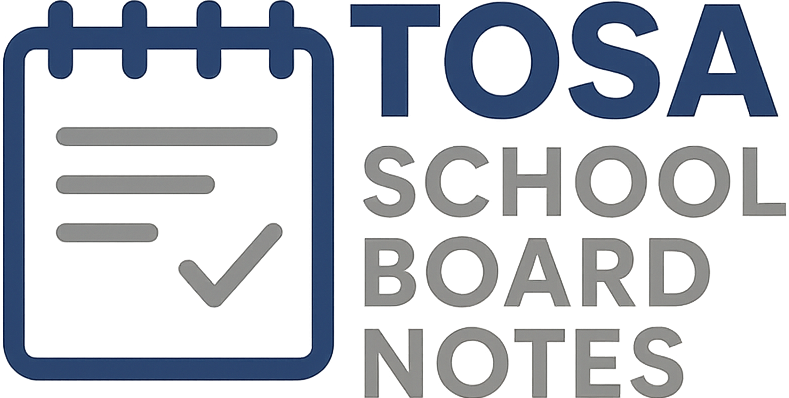5/14/25
Wauwatosa School Board Retreat
Call to Order and Roll Call (6:04)
President Lynne Woehrle calls the school board retreat to order at 6:04 p.m. in Conference Room C at the Fisher Administration Building. All members are present: Burzynski, Bauer, Bach, Morris, Heimerl-Rolland, Wier, and Woehrle.
Board Icebreaker Activity (6:20)
Board members engage in an interactive icebreaker using "Habits of Systems Thinkers" cards. Each member selects two habits that reflect how they approach decision-making and systems-level thinking. Common themes include making decisions based on data, seeking to understand different perspectives, focusing on long-term consequences, and understanding the parts and wholes of systems. Members reflect on listening, learning from others, and acting with humility. Superintendent Dr. Demond Means participates and shares his focus on collaboration and thoughtful response.
Legal Review for Board Members (19:02)
Attorney Jason Waterman from Renning, Lewis & Lacy delivers a comprehensive legal training covering board governance, open meetings law, ethics, records, liability, and best practices. Highlights include:
- Board Authority: Only the full board, not individual members, can take legal action. Members act as part of a collective body.
- Speech and Representation: Board members retain free speech rights but must not imply board positions without formal action. They should clarify when speaking in a personal capacity, especially online or in community forums.
- Open Meetings Law: Discussion of board business outside official meetings is restricted. Group emails, texts, and side conversations can violate the law if they involve a quorum or series of communications amounting to one.
- Closed Sessions: Permitted for limited reasons including student discipline, employee matters, and legal strategy. Final decisions typically must return to open session unless confidentiality is required.
- Public Records: Any communication regarding board business, even on personal devices, may be subject to public records laws. Using district accounts and preserving records is strongly encouraged.
- Liability: Members are personally liable for actions taken outside their official duties or that violate legal obligations. Indemnity and immunity apply only when acting within the scope of their role.
Board members ask clarifying questions about texting, social media boundaries, and how to handle informal communications from the public. Waterman emphasizes the importance of training, clarity, and intent in maintaining legal compliance. The board discusses several scenarios to clarify understanding.
Title VI and DEI Policy Discussion (1:34:05)
Dr. Renee Hill leads a session on Title VI compliance and DEI (Diversity, Equity, and Inclusion) policy development. She walks the board through federal requirements, recent national developments, and what policy components are considered best practice. Discussion topics include:
- Legal differences between protected class language (e.g., race, national origin) and broader DEI values
- The importance of clarity and consistency in how the district defines equity, access, and opportunity
- Board members' role in setting expectations and direction without micromanaging implementation
- Potential updates to existing policies and upcoming community engagement around this work
Board members ask questions about policy intent, stakeholder input, and how these principles intersect with curriculum, hiring, and discipline. Renee emphasizes anchoring policy in legal frameworks and centering student well-being and access.
Retreat Adjournment (3:08:07)
The retreat concludes after over three hours of training and discussion. No formal votes are taken. The session is designed to build board capacity, clarify legal and governance responsibilities, and reflect on long-term district goals.
